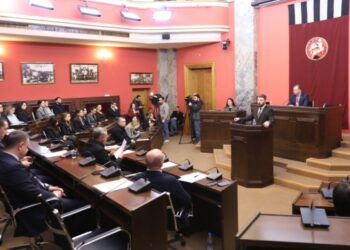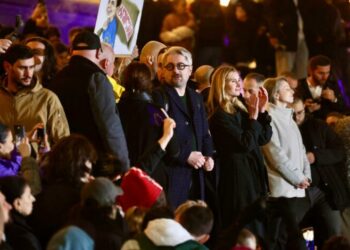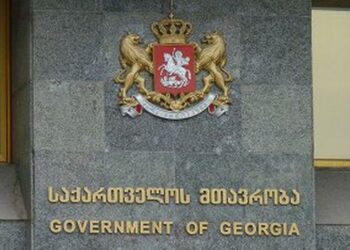The Russians Are Coming, the Russians Are Coming is a 1966 American movie describing the confusion triggered by grounding of the Soviet submarine near a small New England island during the Cold War, but walking along Rustaveli Avenue and hearing the hurrying foreign pedestrians speak Russian as widely as never before is no laughing matter for most. Thousands of Russian escapees of every possible age can be seen and heard all over the place here, having fled their socially and economically endangered land.
Who would have thought that the Russians, in the wake of the never-ending 30-year strife over our occupied lands, would dash to this particular country to seek calm, abode and help during the unexpected uncertainties caused by Russia’s military operation against Ukraine?
When getting ready for another invasion of another piece of land in another country, Russian authorities routinely use the classic excuse of “protecting their citizens” in said land
The world is changing with unbelievable speed in front of our very eyes. The migration processes of a planetary magnitude, mostly from eastern countries towards the west up till now, have lately been replenished by a huge flood of emigrants from Ukraine, Russia and Belarus. If Georgia has so far avoided the influx of refugees from the east, now the pressure is coming from the west. The unilateral visa-free access to Georgia opens the gates of the country for Russians, saying nothing about the Ukrainians and Belarusians, and it is not yet clear whether they’ll be wanting to stay here temporarily or forever.
On top of that, we have no idea how good or bad the wave of new immigration might be for Georgia, considering one third of the country is still occupied, the two runaway Georgian regions having been recognized by Russia as independent states and intensely poised before the rest of the world to be considered as free independent nations, all to the chagrin and detriment of Georgia proper, as shredded and shrunken as it is today.
One category of our population, the landlords and landladies, economically dependent on the living space they own, have, however, literally found themselves in seventh heaven thanks to that immigrating manna from the sky, pulling up apartment rental and selling prices to the utmost.
Well, wars are always bizarre, and their consequences unpredictable: some people lose their lives or the lives of their loved ones, some lose their precious domiciles, some look for shelter away from their regular habitat, and some get richer, taking advantage of the situation. And we may well be unclear how to take it: is this unexpected avalanche of immigration okay for us in terms of giving our ever-vacillating GEL some additional strength, or is the addition to our population to be too cumbersome?
Thousands of Russian escapees of every possible age can be seen and heard all over the place here, having fled their socially and economically endangered land
One scary supposition tickles painfully at the Georgian brain. The presumption might not sound realistic right now, but could easily morph into actual fact, considering the scenes of the recent past, and not necessarily that of Georgia’s alone. When getting ready for another invasion of another piece of land in another country, Russian authorities routinely use the classic excuse of “protecting their citizens” in said land. As such, the solidly substantiated suspicion is that this could happen here in Sakartvelo too, the pretext being born right in front of our noses as we watch this intense moment of demographic interaction with Russia, Ukraine and Belarus unfold. I have also heard some exclaim euphorically: “Let the new blood flow in! There’s nothing wrong with increasing our population to the level of happier soviet times: more mixed marriages and more bilingual kids, additional working hands, and growing chances to shore up the country’s budget!” OK, granted, but how does it look in real life when we see Russia and Ukraine both so beleaguered, becoming ever more depleted from the war effort, and their talent scattered to the winds, including to this country, as much at a loss at it is today?
Op-Ed by Nugzar B. Ruhadze














